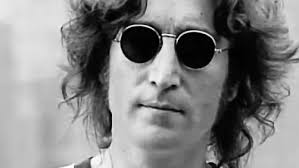DECEMBER 8 — 1941 Changes in America; 1765 Happy birthday Eli Whitney
DECEMBER 8

1941 – December 8 was much different from December 7. On December 7th, folks were getting ready to hear on national radio the Redskins and the Eagles play a championship game. A year before the Redskins got a beatdown by the Chicago bears in a 73-0 victory. But now football wasn’t important.
Army and Navy forces reporting for duty was the priority. Christmas leaves and furloughs were cancelled. The espionage Act of 1798 was in full force on this day as Japanese nationals were placed in custody. Roadblocks and armed guards were set up all over America and in California roads were cleared to allow the military dispatch anti-aircraft missiles. Costa Rica, Nicaragua, Australia, China and Canada declared war on Japan before President Roosevelt even had a chance. At noon, life stopped in America as everyone listened to their radios for the President to address the nation. FDR made his famous speech, starting by saying that December 7, 1941 is a date that will live in infamy.
A few hours later, FDR formally declared war on Japan. Everyone except Jeanette Rankin was all for it. Rankin, the first woman elected to Congress and a devoted pacifist, cast the only Congressional vote against U.S. involvement in WWII. She was vilified by the news and known as Jeanette Rankin. Recruiting officers had applicants lined up down the streets. The draft was about be expanded to enlist more men. Eleanor Roosevelt pointed out how calm her husband was. Like an iceberg, as she put it. On December 7, most Americans couldn’t find Pearl Harbor on a map. But today, it didn’t matter if you were a Republican or Democrat. You were an American. Japan had not acted in honor. She attacked America without warning or provocation. As the L.A. Times read on December 8, 1941, “Japan has asked for it. Now she is going to get it.”

1938 – Highest temperature for December in US recorded in La Mesa, CA. Not only do I live in La Mesa but so do Dave Mustain’s parents. Dave’s the lead singer of Megadeth. By the way it’s usually pretty hot in southern California in December but we put up Christmas lights anyway.
1765 — happy birthday Eli Whitney.
Much more than just the inventor of the cotton wheel which ignited a spark in the cotton industry in the south, but also revolutionized the factory model with his use of interchangeable parts, leading in part to the industrial revolution way before there even was one.
He was born to a prominent judge and farmer in Westborough, Mass, and actually didn’t attend college until his mid-20s, when he attended Yale. He was a gadget guy, or Science and tech as we call it today, so science came easy to him.
On October 28 1793 he submitted a patent for the cotton gin, and I get into entails on the design and the centrifugal force and the simplicity behind the whole machine which would just get ripped off by copycats later. Then on March 14, he received the patent for the cotton gin, or engine, and I talk about the politics behind the invention and how it changed the South.
What I don’t really discuss is how the cotton gin changed the outcome of history. If this gadget could pull seeds out of cotton 10 times faster than slaves could, how would that has changed the landscape of America, both in industry and slavery? How would it have affected the Civil War for that matter? But my goal on this show is not to explore alternate realities, even if they do happen sometime or somewhere. I want that to be your goal and you tell me what happens next in that alternate universe.
Getting back to this section of the multiversity after the patent for the cotton gin, Whitney never submitted another one since he considered them worthless. Although he had won some $90k in patent lawsuits after suing everyone in the states of the Carolinas and finally Georgia, he spent it all on legal fees and netted very little. His next brilliant move: guns.
Yup, by 1798 the US was having trouble with France and it looked like there was a chance they would come to blows. A quick audit showed that the US army had around 1,000 muskets, and that would not do. Congress ordered 10,000 0 muskets for immediate use, and few contractors won the bid, save Whitney and his partner. Probably because Whitney’s factory design made sense. Rather than literally building 10,000 muskets, it would be much cheaper and more efficient to build 10,000 barrels, 10,000 trigger guards and plate10 locks and all the other stuff that made up an 18th century musket. This way if a part got busted, it could be replaced instead of throwing the whole gun in the trash.
In 1917 Whitney married Henrietta Edwards, who had deep roots in both the Republican-Democrat party as well as the Federalist Party. But eight years later Eli Whitney would die of prostate cancer on January 8, 1825.
Happy birthday Eli!
1980 – John Lennon is shot in New York City.
…Mark David Chapman shot Lennon four times just outside Lennon’s Manhattan apartment. See, God told him to, even though during his trial he denied hearing voices and claimed to be sane. There were several reasons he did it, mainly because of John’s earlier comments made when he said that the Beatles were bigger than Jesus. That comment literally got John Lennon killed.
Second, the beautiful but communistic song Imagine had lyrics about having no possessions, yet here was Lennon with a yacht and large estates, laughing at people like Chapman. Third, on the Plastic Ono album, Lennon said he doesn’t believe in God, and he doesn’t believe in the Beatles. Chapman was obsess with JD Salinger’s catcher in the Rye and often thought he was the real Holden Caulfield who spoke to little people about anti-phoniness. The fact that Chapman was on cocaine didn’t help things. So the judge gave Chapman 20-life. Since then, Chapman’s been denied bail eight times, the last one being in August 2016, and he was denied, denied, denied.

